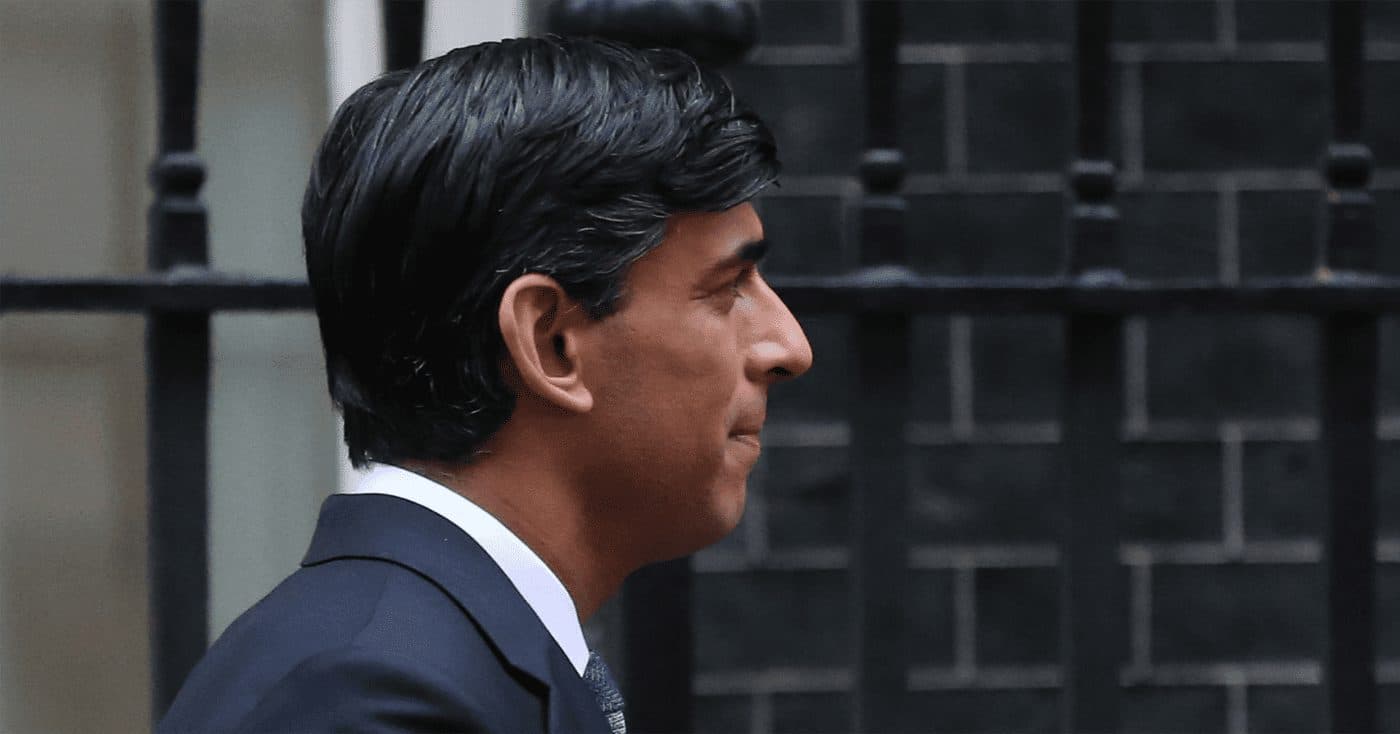UK Government Seeks to Boost Regulation of Crypto Ads
Plan calls for Financial Conduct Authority to regulate cryptoassets under same standards as stocks, shares, insurance products

Rishi Sunak, Chancellor of the Exchequer; Source: Shutterstock
- The UK’s Advertising Standards Authority censured Arsenal Football Club last month for promoting tokens to fans without proper warnings
- The government’s plan follows similar efforts by agencies in Spain and Singapore
The UK government shared plans to bolster its rules on crypto advertisements in an effort to protect consumers from misleading claims.
The plans call for bringing the advertising of cryptoassets under the rules of the Financial Conduct Authority (FCA) — the same standards that stocks, shares, and insurance products are held to, the UK government revealed Tuesday.
The UK launched its Cryptoasset Taskforce in 2018, and Rishi Sunak, Chancellor of the Exchequer, said in a statement that the government is eager to support innovation in the crypto space.
“Cryptoassets can provide exciting new opportunities, offering people new ways to transact and invest, but it’s important that consumers are not being sold products with misleading claims,” Sunak added. “We are ensuring consumers are protected, while also supporting innovation of the cryptoasset market.”
The number of consumers in the UK holding cryptocurrency was estimated to be 2.3 million, according to an FCA report published in June.
Though the Advertising Standards Authority (ASA) has been trying to respond to the complaints about misleading crypto promotions, the agency needed support from the FCA given the scale of the problem, according to Susannah Streeter, a senior investment and markets analyst at Hargreaves Lansdown. The ASA could only censure firms after the ads had been posted, she added.
The ASA censured Arsenal Football Club last month for promoting tokens to fans without proper warnings. The watchdog told the organization to ensure its future ads “did not trivialise investment in crypotassets” and make “sufficiently clear that the value of investments in cryptoassets was variable and cryptoassets were unregulated.”
The UK rule changes will come through legislation to amend the Financial Promotion Order, which sets out the investments and activities to which the financial promotion regime applies, according to the government’s announcement.
“Once this new legislation is passed, firms promoting crypto products will have a much higher bar to jump to show that ads are fair, clear and not misleading and companies could face hefty fines for serious breaches,” Streeter explained in an email.
The UK government’s plans follow rules outlined by Spain’s national securities market commission on Monday. The agency establishes that the advertising of cryptoassets must include “clear, balanced, fair and non-misleading content and information on the risks in a prominent manner,” among other measures.
The Monetary Authority of Singapore (MAS) also released guidelines Monday urging that digital payment tokens providers should not downplay the risks of crypto trading. Regulated providers, including banks and financial institutions, are now barred from promoting their crypto services to the public through any means except through their own websites, social media accounts or mobile applications.
In the US, a complaint filed against Voyager Digital last month alleges that the firm is “targeting unsophisticated investors with false and misleading promises of reaping large profits in the cryptocurrency market.” A Voyager spokesperson called the action “absolutely spurious and without any merit.”
“The rollercoaster ride is set to continue given that crypto assets are also highly sensitive to the fortunes of the stock market and were propelled higher in an era of ultra cheap money,” Streeter said. “As speculation swirls about how rapidly central banks will tighten mass bond buying programmes and start raising interest rates, given soaring inflation, they are likely to stay volatile.”
The price of bitcoin was about 41,600, as of 11:30 a.m. ET, according to CoinGecko — down nearly 40% from its all-time high of more than $68,000 in November.
Get the news in your inbox. Explore Blockworks newsletters:
- The Breakdown: Decoding crypto and the markets. Daily.
- 0xResearch: Alpha in your inbox. Think like an analyst.






